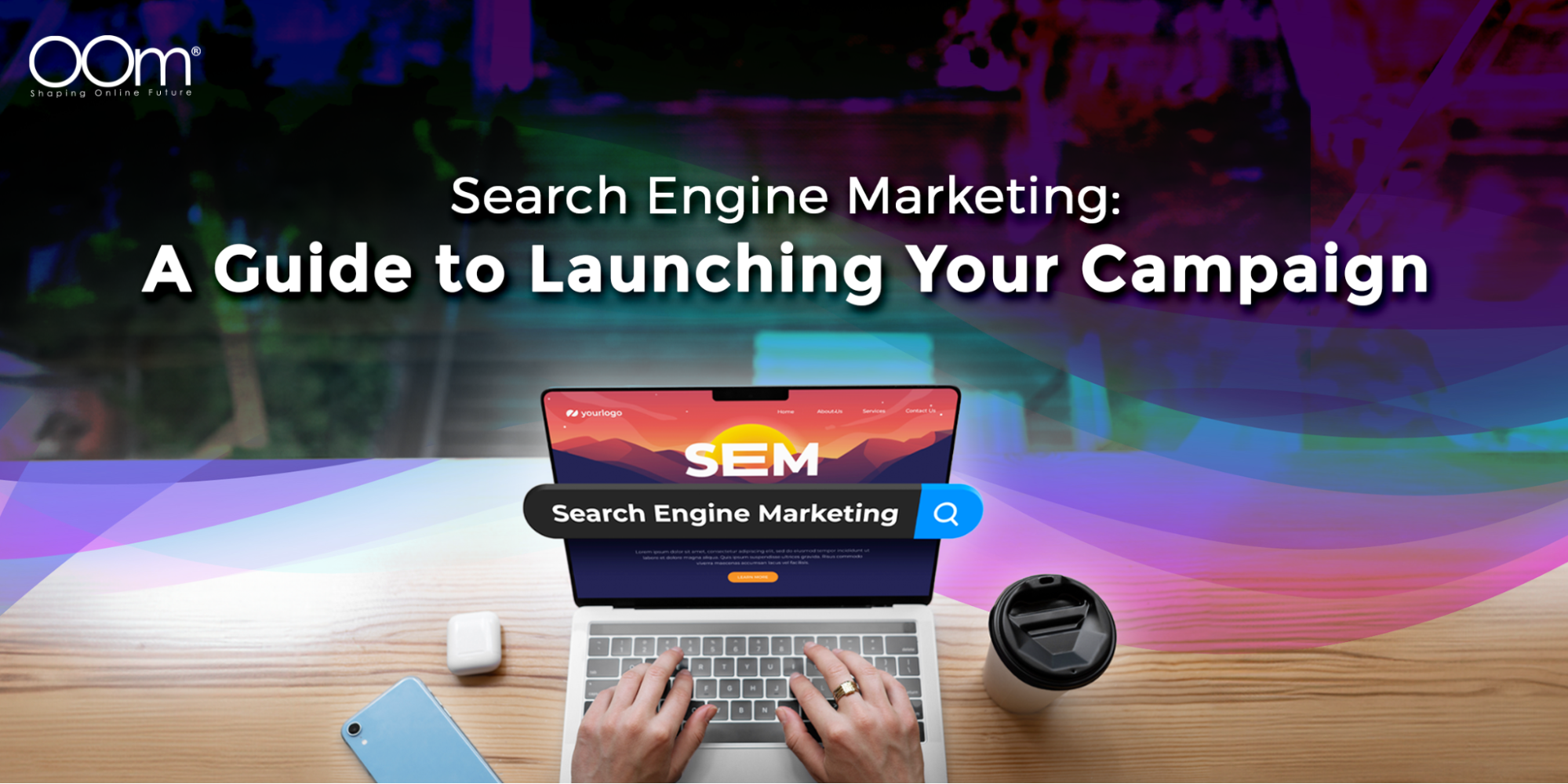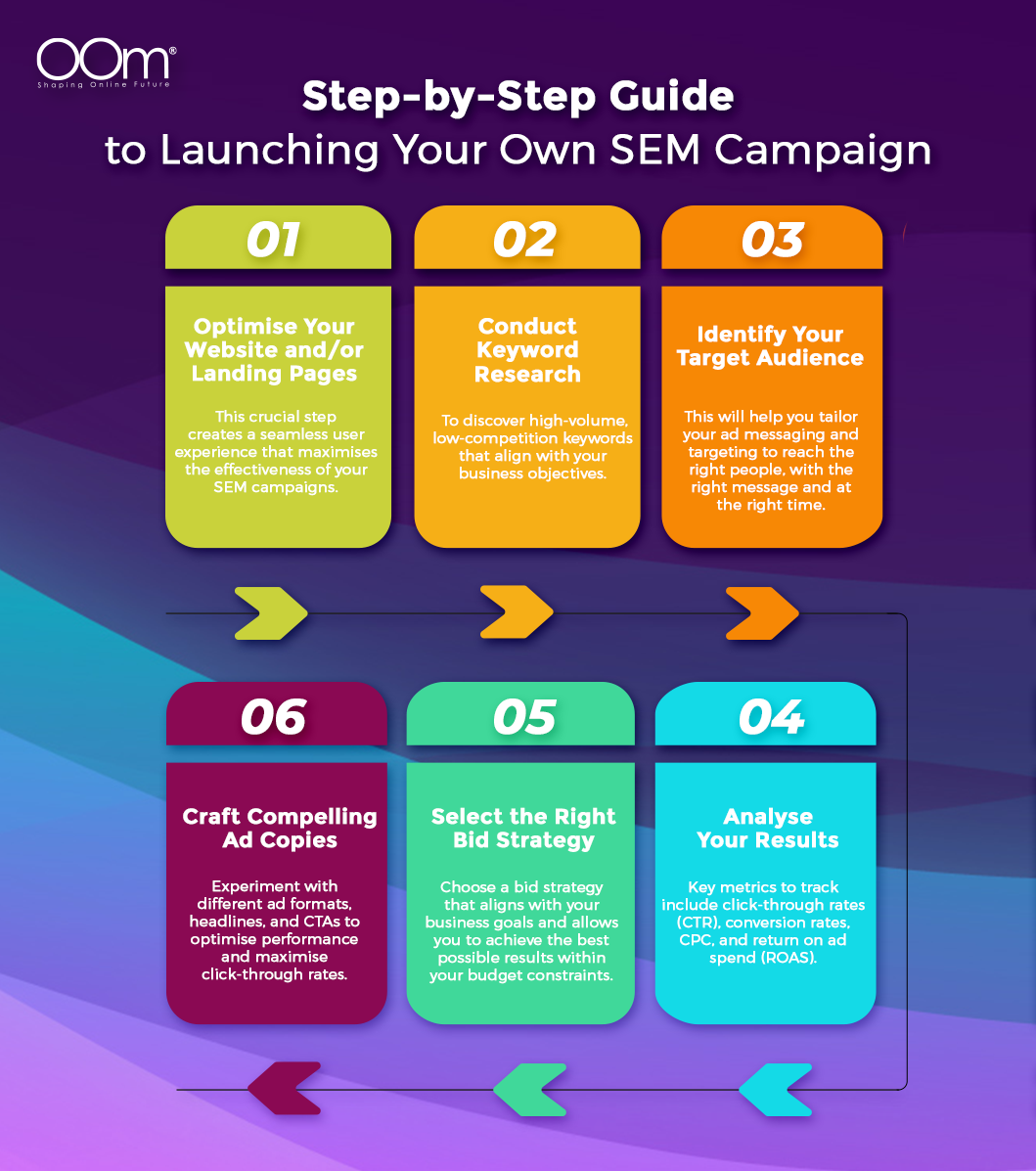
Competition is fierce and consumer behaviour is constantly evolving in today’s digital landscape. As such, mastering the art of Search Engine Marketing (SEM) is no longer optional but inevitable and necessary.
Whether you are a seasoned marketer looking to refine your strategy or a newcomer seeking to make a splash in the digital realm, this guide is your go-to resource for unlocking the full potential of SEM. From understanding the fundamentals of SEM to crafting compelling ad copies and analysing performance metrics, we have got you covered every step of the way.
Keep reading to find out more.
What Is Search Engine Marketing?
SEM is a powerful strategy for businesses aiming to enhance their online visibility and reach a highly targeted audience. But what exactly is SEM, and how does it differ from other marketing tactics?
Unlike Search Engine Optimisation (SEO), which focuses on optimising organic search visibility through techniques like content creation and link building, SEM involves paying search engines like Google or Bing to display ads prominently when users search for specific keywords related to the advertiser’s offerings.
These are some key components of SEM:
1. Paid Search Advertising
SEM primarily revolves around paid search advertising, where advertisers bid on keywords relevant to their business. When users search for these keywords, the search engine displays the advertiser’s ad in the sponsored section of the search results, typically above or alongside organic listings.
2. Ad Auctions
The placement of ads in search results is determined through ad auctions, where advertisers compete for ad space by bidding on keywords. Factors such as bid amount, ad quality, and relevance play a crucial role in determining ad rank and placement.
3. Targeting Options
SEM offers various targeting options that allow advertisers to reach their ideal audience based on factors such as location, demographics, interests, and search intent. This level of precision targeting ensures that ads are shown to users who are most likely to be interested in the advertiser’s products or services.
4. Ad Formats
SEM encompasses a variety of ad formats, including text ads, display ads, shopping ads, and video ads, allowing advertisers to choose the format that best suits their goals and target audience.
While SEO and SEM are often viewed as separate strategies with distinct objectives, when strategically integrated, both can work hand in hand to maximise a brand’s online visibility, drive targeted traffic, and ultimately, boost conversions.
Why Is Search Engine Marketing Important?
With its ability to deliver targeted traffic, increase brand visibility, and drive measurable results, SEM has become an indispensable component of any comprehensive marketing strategy. Here are some reasons why SEM is so important for businesses today:
1. Greater Visibility
One of the primary reasons why SEM is essential is its ability to provide instant visibility to businesses in search engine results pages (SERPs). Through paid advertising, SEM allows businesses to bypass the traditional waiting period associated with organic search rankings and ensure their ads are prominently displayed to users searching for relevant keywords. This increased visibility not only drives immediate traffic to the website but also enhances brand recognition and establishes a strong online presence.
2. Drive Brand Awareness
SEM is a powerful tool for building brand awareness and recognition among target audiences. By strategically targeting keywords related to their products or services, businesses can ensure their ads are seen by users who are actively seeking the solutions they offer. Over time, consistent exposure through SEM campaigns helps to reinforce brand messaging, increase brand recall, and position the business as a trusted authority in its industry. Heightened brand awareness attracts new customers as a result, but also fosters loyalty and trust among existing ones.
3. Increased Conversions
Perhaps the most compelling reason why SEM is important is its ability to drive tangible results in terms of conversions and sales. Unlike traditional advertising channels where success metrics can be vague and difficult to measure, SEM provides in-depth analytics and tracking tools that allow businesses to monitor the performance of their campaigns in real time. Through key metrics such as click-through rates, conversion rates, and return on investment (ROI), businesses can identify what is working and make data-driven optimisations to improve campaign efficiency and drive conversions.
How to Launch Your Own Search Engine Marketing Campaign

Feeling inspired to give SEM a try? Launching a successful SEM campaign requires careful planning, strategic execution, and continuous optimisation. Take inspiration from this step-by-step guide to help you kickstart your SEM journey and achieve your marketing goals:
1. Optimise Your Website and/or Landing Pages
Before launching your SEM campaign, ensure that your website and landing pages are optimised for user experience and conversion. This includes:
- Ensuring fast loading times and mobile responsiveness.
- Clear and concise messaging that aligns with your SEM ads.
- Compelling calls-to-action (CTAs) that encourage visitors to take the desired action.
This crucial step creates a seamless user experience that maximises the effectiveness of your SEM campaigns.
2. Conduct Keyword Research
Keyword research is the foundation of any successful SEM campaign. Identify relevant keywords and search terms that your target audience is likely to use when searching for your products or services. Make sure to utilise keyword research tools like Google Keyword Planner or SEMrush to discover high-volume, low-competition keywords that align with your business objectives.
3. Identify Your Target Audience
Understanding your target audience is the key to crafting targeted ad campaigns that resonate with your ideal customers. Define your audience based on demographics, interests, online behaviour, and purchase intent. This will help you tailor your ad messaging and targeting to reach the right people, with the right message and at the right time.
4. Craft Compelling Ad Copies
Write clear, concise, and persuasive ad copies that highlight your unique selling propositions (USPs) and encourage users to take action. You can also experiment with different ad formats, headlines, and CTAs to optimise performance and maximise click-through rates.
5. Select the Right Bid Strategy for Your Business
Consider factors such as your budget, campaign objectives, and competition when selecting a bidding strategy. Common bid strategies include:
- Cost-Per-Click (CPC): Pay only when users click on your ads.
- Cost-Per-Acquisition (CPA): Pay based on the number of conversions generated.
- Enhanced Cost-Per-Click (eCPC): Automatically adjust bids to maximise conversions.
It is recommended to choose a bid strategy that aligns with your business goals and allows you to achieve the best possible results within your budget constraints.
6. Analyse Your Results
Once your SEM campaign is live, monitor and analyse performance metrics to track progress and identify areas for improvement. Key metrics to track include click-through rates (CTR), conversion rates, CPC, and return on ad spend (ROAS). Use this data to optimise your campaign settings, refine targeting, and adjust bids to maximise performance and achieve your campaign objectives.
Seize the Opportunities with SEM
As you embark on your SEM journey, remember that success does not happen overnight. It requires patience, strategic thinking, and a willingness to adapt to ever-evolving trends and algorithms. This is where a search engine marketing agency comes into play — the professionals can serve as invaluable partners in your quest for online visibility and success.
Here at OOm, a digital marketing agency specialising in a variety of services including SEO and SEM, we understand the challenges businesses face in today’s competitive online landscape. With a proven track record of delivering results-driven SEM campaigns for clients across diverse industries, we are passionate about helping businesses like yours unlock the full potential of search engine marketing.
Contact us today to learn more about our SEM services.
